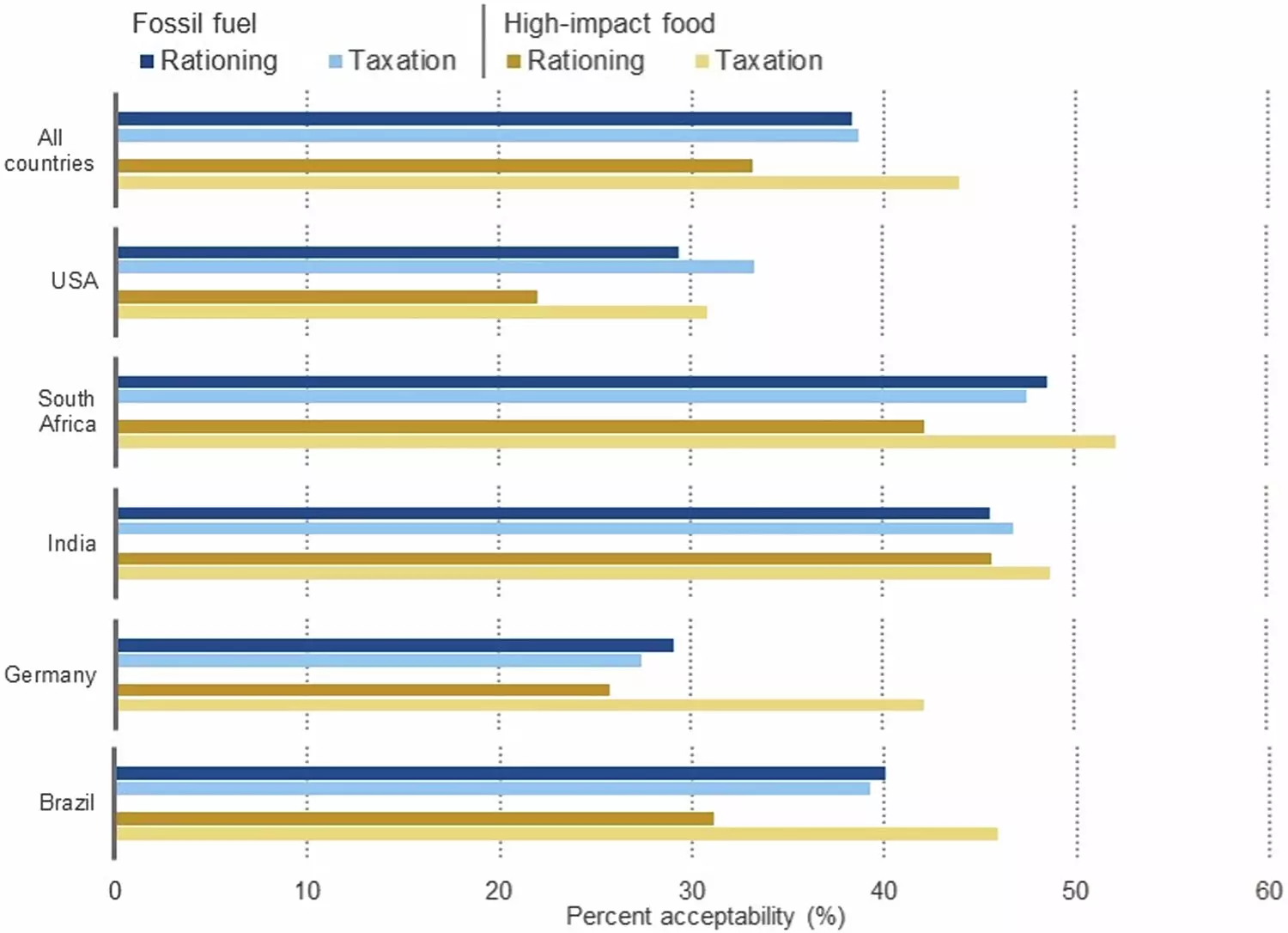As the specter of climate change looms larger with each passing day, innovative strategies are required to curb the escalating consumption of goods that contribute significantly to greenhouse gas emissions. One such strategy gaining traction is the concept of rationing. New research from the Climate Change Leadership Group at Uppsala University reveals that nearly 40% of individuals surveyed would be amenable to rationing basic goods like meat and fuel. While rationing may evoke images of scarcity and restriction, it can also represent a fair and systematic method for reducing our carbon footprint, particularly if implemented equitably, irrespective of income levels.
The rationale for engaging in rationing is straightforward. Certain commodities, especially those high in carbon emissions—such as fossil fuels and emission-intensive foods—present a substantial environmental burden. As the study led by Oskar Lindgren indicates, rationing could serve as a balance, offering a way to control consumption without disproportionately affecting low-income households. The perception of equity in such policies is pivotal, as fairness often engenders greater public support.
The acceptance of rationing is tightly interwoven with public perceptions of fairness and effectiveness. The study suggests that while taxation has traditionally been a favored avenue for environmental regulation, rationing possesses surprisingly comparable levels of public acceptance. In fact, people’s approval of fuel rationing was noted to be nearly equal to their support for fuel taxation—38% favored rationing, compared to 39% favoring taxation. This unexpected finding suggests that more direct interventions could be met with less resistance than anticipated, particularly when framed within the context of shared responsibility for addressing climate change.
Interestingly, regional differences emerged in this research, underscoring the cultural and socio-economic factors that influence public attitudes. Countries like India and South Africa showed a higher willingness to accept rationing strategies, indicating that context matters significantly. Conversely, respondents in Germany and the United States expressed stronger opposition to meat rationing, despite the pressing need for environmental action. This variance hints at a complex relationship between local ideologies and individual values when it comes to climate action.
A closer examination of demographic data reveals intriguing insights into who is more likely to support rationing policies. Younger, more educated individuals emerged as staunch proponents, often correlating their environmental concerns with favorable attitudes toward rationing. This generational divide may be indicative of broader awareness and engagement with climate issues among younger populations, who are arguably more likely to grasp the urgency of the crisis and the need for immediate action.
Additionally, societal concerns about climate change significantly influenced individuals’ preferences for rationing over taxation. Those who express environmental anxiety or a commitment to sustainability appear more receptive to direct consumption controls. This suggests that messaging and educational efforts centered on climate issues may play a vital role in shaping public attitudes, encouraging a move towards altruistic consumption behaviors.
While the notion of rationing is gaining traction, the path forward demands careful consideration of how such policies are designed and communicated to the public. Effective implementation will require a framework that fosters trust, transparency, and a shared commitment to climate objectives. Lessons learned from existing rationing systems, such as those employed during water shortages, could inform practices that promote cooperation among individuals, ensuring that compliance is seen as a communal effort rather than an imposition.
The findings from this pivotal study not only challenge long-held assumptions about public resistance to rationing but also illuminate its potential as a fair and effective strategy for addressing climate issues. As we navigate the complexities of climate change, inviting dialogue around rationing may help pave the way for a more sustainable future. The readiness of the public to embrace these discussions marks a hopeful step toward collective action in the fight against environmental degradation.

